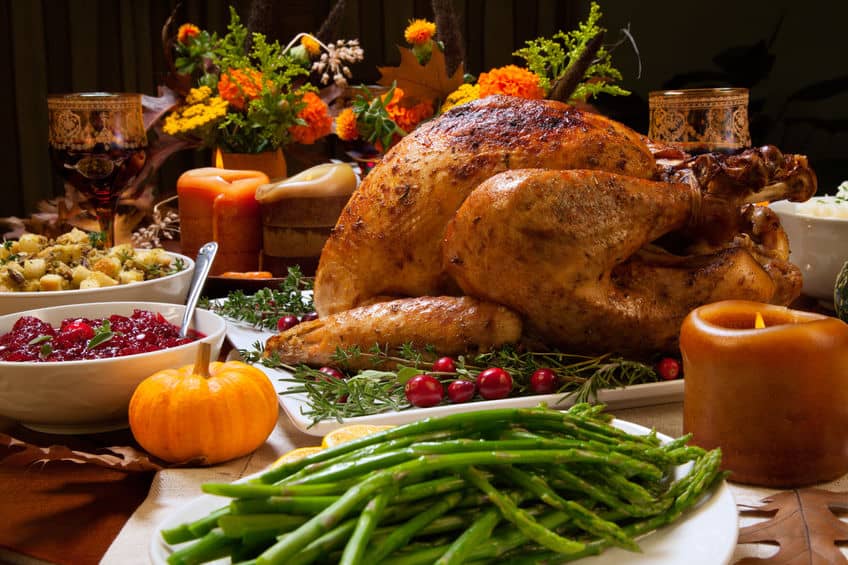One expert advises trying to choose healthy foods during the celebrations rather than indulging in decadent eating right away.
“The holidays are a time for joy and get-togethers with loved ones, delectable meals, and an abundance of confections. Thanksgiving is a time when people relish their favorite foods and spend time with loved ones, according to Dr. Luis Rustveld, an assistant professor of family and community medicine at Houston’s Baylor College of Medicine. “Quality time spent with loved ones and friends is essential for mental and general wellbeing. Establishing these [healthier eating] practices over the holiday season can help create a healthier start to the new year.
Although Rustveld pointed out that you can make dietary changes at any time of year, the holidays might promote more mindful eating because you can put techniques like portion control, moderation, and appreciating food’s textures, flavors, and aromas into practice.
One strategy to enjoy your meal and avoid overindulging is to take your time and concentrate on these details while eating, he suggested.
In the days preceding celebrations, people shouldn’t restrict or deprive themselves of food because this could lead to overindulgence.
Remember the calories in seasonal drinks and alcohol as well. According to Rustveld, alcohol is typically served with holiday meals and should be used sparingly for both health and safety concerns.
The health effects of consuming these sugary drinks with desserts may be detrimental. Sugar-free or sugar-free alternatives to mixed drinks can mitigate that effect.
Holiday meals will still be enjoyable if you or a loved one follow a modified diet because of health issues, according to Rustveld. Here are a few easy strategies to try:
Inform holiday hosts about any foods or ingredients that you or a loved one must not eat. You can also take matters into your own hands by bringing dishes that you have prepared yourself to share.
Additionally, don’t view eating healthily as a punishment.
According to Rustveld, the term “diet” has been used incorrectly to mean “calorie deprivation.” “Instead of thinking about ‘going on a diet,’ people should consider what they want to achieve with their eating habits, such as lowering cholesterol, losing weight, or modifying their diet to manage chronic conditions. Then, they should modify their current eating habits to achieve those goals.”
Here are three ways to enjoy a healthier Thanksgiving
Many people want to enjoy their Thanksgiving without feeling uncomfortable or overindulged. The good news is that maintaining your health objectives while still enjoying all of your favorite foods is achievable.
Food is meant to be enjoyed, which may entail letting go of any dietary anxieties or limitations connected to your weight or overall health. A single eating day won’t have a significant long-term impact on your appearance or mood. Eating for enjoyment fits into a balanced, healthy lifestyle in general.
Here are some suggestions to help you feel good and stay in balance if meeting your meal goals and targets is important to you on this particular day.
1. Do not skip breakfast
Have breakfast as the first step to a happy and healthy Thanksgiving. Many choose to restrict themselves by skipping breakfast and lunch in favor of eating a large meal later.
It is not advisable to miss meals before dinner, though. When you miss meals, you’re usually so hungry for dinner that you overindulge and become uncomfortable. The best way to prepare for an extravagant feast is to eat a nutrient-rich breakfast. The best foods are those high in lean protein and fiber, as these will help you feel fuller for longer periods of time and maintain your energy levels.
Furthermore, missing any meal, including breakfast, could result in inadequate nutrient intake. Even though missing a day’s worth of nutritional goals won’t have a lasting effect, you might not want to skip meals if you’re trying to get a certain vitamin or mineral every day (like iron, B12, folate, etc.).
2. Stay Hydrated
Though it’s helpful any day, this advice is especially beneficial on Thanksgiving. Thanksgiving cuisine tends to be heavy in sodium. Drinking water will help you feel less bloated and detoxify your body.
You’ll probably feel more awake and energized after drinking enough water, which is something you’ll want on a day this hectic. Soups are a great way to increase meal satisfaction and stay hydrated during the holidays.
3. Try a healthy new recipe
Thanksgiving conjures up images of golden-brown stuffing, crisp apple pie with vanilla ice cream on top, glistening turkey, and creamy mashed potatoes with a pat of butter. And that’s not at all problematic! For the majority of people, occasionally indulging is harmless.
However, if you would rather up the nutritional value of your holiday feast, think about experimenting with a new recipe or a slightly altered version of an old favorite. For example, use whole-grain bread in your regular stuffing recipe and subtly add some vegetables. To partially replace the butter and cream in your potatoes, stir in some Greek yogurt and broth. Instead of using fried onions to top your green beans, try using slivered almonds.
Another way to increase the variety of nutrients in your choices is to include a large salad or soup that is high in vegetables. You can indulge in all of your favorite classics and load up part of your plate with foods that you love and that are high in nutrients.

















































